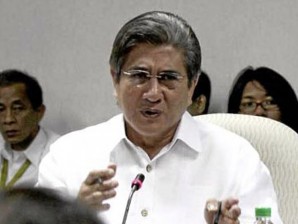MANILA, Philippines—Sen. Gregorio “Gringo” Honasan, who authored the measure in the Senate, said he would fight the veto of the bill that was intended to bring into law enforcement agencies more competent people—many who are at present being kept out because of rules requiring them to be a certain height.
Honasan, a former Army colonel, said it was wrong to peg a person’s competence for a job on their height and that he would appeal to colleagues in Congress to overturn the “ill-advised” veto with a two-thirds vote of all the members.
He noted that other countries and major United States cities had also seen it fit to remove this height requirement for police officers.
“With all due respect to presidential prerogatives, we feel very strongly that the veto does not serve the public interest,” Honasan said in a phone interview.
Malacañang on Tuesday defended itself from criticism that its rejection of a legislative measure repealing the height requirement for police officers, firefighters and jail guards was discriminatory and ill-advised.
“It’s just a reality that we have to contend with,” said presidential spokesperson Edwin Lacierda, a lawyer, justifying President Aquino’s veto of a proposed law abolishing height as a requirement for admission to the Philippine National Police (PNP), Bureau of Fire Protection (BFP) and Bureau of Jail Management and Penology (BJMP).
Lacierda, however, said the President had left open the possibility of lowering—but not abolishing—the height requirement, which currently stands at 5’4” for males and 5’2” for females. One proposal is to lower it to 4’8” to allow more people to apply.
He said the President also believed the measure was unnecessary because of an existing waiver of the requirement.
With the veto, the President returned the consolidated Senate Bill No. 3217 and House Bill No. 6203 to Congress without his signature.
The President had said he agreed with the bill’s noble intent to address height equality in the three agencies, but said he was “seriously apprehensive of the concerns” raised by the PNP and BJMP on the safety of their personnel and of the public.
The PNP chief had supported the bill’s veto. Director General Alan Purisima said the President’s decision was “wise” and would save the PNP from possible legal issues.
Asked to elaborate, the PNP chief said “midgets” who failed to enter the police service due to other reasons might accuse the PNP of discrimination.
“For example, a midget files an application in the PNP. He is intelligent and runs fast. But he stands lower than an assault rifle. If we reject him, he may just file cases against us. If other midgets like him file a class suit, what will we do?” he said. With reports from Michael Lim Ubac and Marlon Ramos
